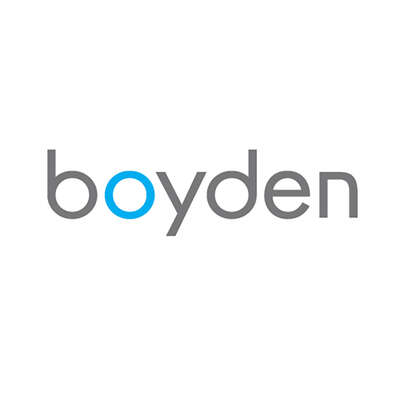Interim managers drive ESG goals forward - Pragmatic solution for SMEs: With the progressive introduction of the EU's Corporate Sustainability Reporting Directive (CSRD), which came into force in 2022, all companies will have to make environmental and social indicators transparent in future.
This article first appeared in "Personalführung" - Das DGFP-Magazin für das Personalmanagement, issue 11/2023. Written by Annette Neumann, Freie Journalistin, Berlin
The new legislation is a challenge for SMEs in particular. This is because the CSRD includes the obligation to report on sustainability, which is being extended to companies not previously affected. Many company divisions, including HR departments, are not yet prepared. A recent study by auditing firm PwC, for which around 160 medium-sized companies were polled, came to the conclusion that sustainability is often overridden by more pressing issues, such as rising energy costs, and is not addressed strategically. It is about time to anchor ESG (Environmental, Social and Corporate Governance) holistically in the corporate strategy in order to remain competitive. The pressure to act varies depending on the industry and company size. Some sectors, such as energy and environmental technology or financial service providers, which would run greater risks if they failed to meet ESG criteria, have already addressed the issue. This is the experience of Tapani Hänninen, a partner at Boyden Interim Management GmbH, who has placed interim managers in medium-sized manufacturing companies as well as for banks and private equity companies. SMEs are not yet feeling the necessary urgency to act. What's more: "Many HR managers, especially in SMEs, often don't have the expertise or the necessary resources to drive the issue forward." This is where interim managers come into play, who can be mobilized quickly and implement complex topics with an unbiased view. Hänninen assumes that the demand for interim managers with ESG expertise will increase significantly, at the latest when the reporting obligation for SMEs becomes mandatory in 2025.
Creating fair working conditions
In ESG projects, it is important to set up a sustainability strategy in accordance with the necessary guidelines. Interim managers who are familiar with the legal framework and are able to moderate the process with stakeholders and investors stand to gain an advantage. Corinna Knott, interim manager at the umbrella organization Deutsches Interim Management (DDIM), supports companies in transformation processes and brings expertise from numerous mandates. She supports SMEs in developing and implementing their sustainability strategy: "It is important to carry out a materiality analysis in order to identify issues and relevant opportunities and risks for companies and stakeholders." ESG is an interdisciplinary topic in which all processes along the whole value chain are examined - from procurement to product development, compliance, accounting, sales and HR. "SMEs in particular can use ESG to position themselves, as sustainability reports will also have to include information on corporate social responsibility in future," says Hänninen. Among other things, HR must pay attention to compliance with labor laws, ensure fair working conditions and a healthy working environment. When it comes to reporting, a solid data basis is important in order to demonstrate sustainable action to investors and other stakeholders: "If ESG is meant seriously and is therefore credible, then the topic must be attached to the management. HR should see itself as a key partner and have a seat at the board table."

Source: Dachgesellschaft Deutsches Interim Management e.V. (DDIM)
How interim managers work
Placement: Interim management providers place suitable and available candidates from their pool at short notice according to the client's requirements profile. They receive a commission for this, which averages 25 percent of the total fee paid by the client.
Contracts: Components of the individually agreed service contracts include the objectives and tasks, the planned duration of the assignment, the desired intensity of the assignment per week and the agreed daily rate.
Remuneration: DDIM's almost 700 interim managers are deployed for an average of around 160 days and receive an average daily rate of around 1250 euros. Depending on qualifications, experience and area of responsibility, daily rates of up to 2500 euros are also possible.
Ethical conduct makes employers attractive
When setting up a sustainability project or advising HR business partners, interim manager Knott looks at which topics are in focus. For example, if the company wants to increase the proportion of women to 50 percent and achieve equal pay, women should be given preference when hiring new employees and their salaries should be increased, depending on the company structure. HR has the task of identifying deviations in the individual areas and agreeing and reviewing salary adjustment targets with managers. The next generation of women can be developed into management positions, for example through mentoring programs or the establishment of cross-generational tandems for knowledge transfer. ESG also includes developing life-phase-oriented offers to improve work-life balance. "For example, with part-time offers for women and men to enable them to look after children or care for relatives equally in the interests of gender equality," says Knott. In terms of ethical corporate governance, the aim is to set up sustainable processes with ethical guidelines and to communicate these internally and externally, whether in job advertisements, employee selection or onboarding. "As a shaper of culture, HR has the important task of formulating management guidelines with values that managers exemplify and with which employees identify. Such guidelines are also important for applicants to find out whether the company's values match their own," says Knott.
Sustainability is an ethical value, "which can be another criterion for deciding on an employer alongside the scope of duties and salary". However, if this value is not lived credibly, a company runs the risk of being accused of greenwashing: "Then the employer attractiveness backfires. This makes it all the more important for HR to regularly determine whether managers are leading in accordance with the guidelines and treating employees fairly and respectfully regardless of gender, age or origin." 360-degree assessment systems, regular employee surveys and short feedback loops are suitable for determining and developing leadership quality.
ESG is relevant to remuneration
Linking remuneration to specific and measurable ESG indicators can be an effective way of aligning a company with the achievement of its sustainability goals. Together with the company management, interim managers can determine which measurable factors should serve as the basis for evaluating the variable salary. Knott: "It is important that the criteria are measurable, short- and long-term. Otherwise the efforts will fade away." In relation to the target agreement with individual managers, for example, it is possible to check how many training courses have been approved per quarter, how many employees use public transport or how high the inclusion rate in a department is.
A flexible interim solution for a time-limited ESG mandate can be worthwhile: "The economic benefit of the external expert is quickly visible to the client. Carrying urgent projects for six months is significantly more expensive than investing in an interim manager," says Dr. Marei Strack, CEO of DDIM. Employing the interim manager on a permanent basis is not in the interests of either party. At the end of the assignment, he has successfully made himself obsolete.

